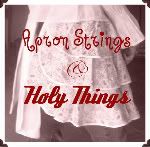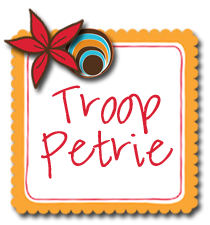She seems like a superwoman who can do it all. Almost like a fairytale princess, yet she needs no rescuing and could probably slay her own dragons.
Who can find a virtuous woman?
for her price is above rubies.
for her price is above rubies.
Proverbs 31:10
I want to let you in on a little secret. Shhh. You can't tell anyone. Most of my life I didn't care for this paragon of virtue.
GASP!
I know, right?!?
I confess the idea of the standard she set for wives seemed so impossible to live up to all the time that when it came time to read about her in my Bible, I zoomed right through the passage, full-speed ahead. I definitely didn't stop until I had plowed through and I mostly certainly did not stop and ask God for directions (and understanding!).
Sadly, that was my own loss.
I wasted a lot of years because I didn't want to (or wasn't ready to) really understand this woman. Now, years later, thankfully, this passage is probably one of my favorites in the Bible. Yes, I still struggle to be more like this wife for God and Darling Groom, but this passage, well, it's an excellent map for the ministry and calling of being a Godly wife! It doesn't happen overnight, but stay on track and you will see the changes.
It wasn't until I took the time to study (II Tim 2:15) that I began to realize some of the things that originally made her seem not-so-real to me.
One was the way this passage is written. Some scholars believe it is a poem, because it was written in poetic form (each part beginning with a letter of the ancient Hebrew alphabet) that was common at that time, especially for oral tradition. This was used in other parts of the Bible (think of passages in Psalms, Genesis, etc.) Okay, so we know it's poetic, and like most poems, the hero/heroine is almost bigger than life-size. That helped bring her down to mere mortal standards a bit in my mind.
Then I began looking into the words themselves. God has really been dealing with my heart about words. For example, in other versions, the word "virtuous" is replaced with "excellent" (still pretty high on the standard bar scale). Then I got to a Jewish version and the words used were "woman of valor."
Wait. What?
Valor. You know, courage, strength, determination. Matthew Henry's Concise Commentary also backs this up. It speaks of strength as her virtue. Strong's Concordance also claims the word "virtuous" used in this verse as meaning "strength". Other meanings of this word in other passages (according to Strong's) are fortress, might, courage, etc.
I pulled off the road and pulled out the Word and began to really study this woman again. It wasn't her perfection that was being praised after all. I think in today's modern world, when we think of virtue we think of things like the Fruit of the Spirit (patience, hope, love, meekness, etc.) which are great virtues to have. But we don't stop to think how we might have lost things in translation through the space of time. Somewhere along the line, my words were not the same words, "virtuous" did not have the same meaning in my mind as it did in the Bible.
What was once a bit dull, nearly perfect and impossible-to-know woman became real. Strength implied grit. Valor implied that she was ready to take on the world for her God and her family. Courage implied that she has fortitude to overcome and determination to do what is right. She went from being a (and I hate to say this) weak fairytale princess to a warrior princess with just the understanding of that one word, in context to the Scripture.
Here was a woman I could relate to.
Here was a woman I could respect.
I was hungry for more wisdom about her and how to be her. I began to question God about why this woman had to be strong. Where did her strength come from? Why was it an essential virtue when we are taught loving and nurturing is our virtue? Why did He create women to be the physically weaker sex if we are supposed to be strong?
Why? Why? Why?
And why was her worth so high?
Why did her strength make her valuable?
In asking those questions, seeking God's will for my life as a wife, that He showed me I was on the wrong road. I was trying to do what I thought was right, and while it wasn't necessarily all bad, it wasn't His plan. He helped me get back to where I needed to be so I could work toward becoming this exhalted and esteemed woman held up so high for many, many generations.
I will share more of my story in upcoming blogposts, how He turned me around and helped me within my own heart to help my marriage become stronger and also to make me stronger in Him! It influenced my relationships with other people as well. There is still a far road to travel and I've had a few false starts, flat tires and even a stalled engine at times, but at least I am on the right path.
Hugs & Prayers,



















